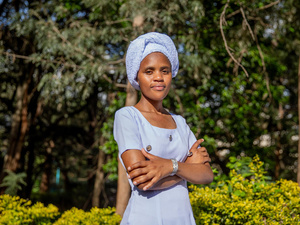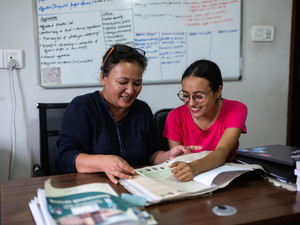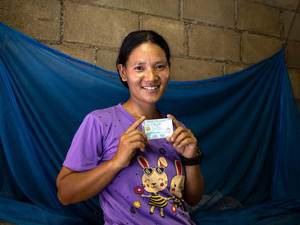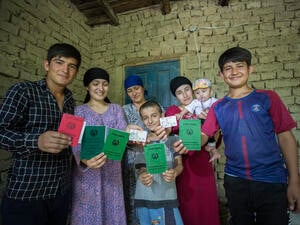Côte d'Ivoire takes big step to end statelessness by acceding to conventions
Côte d'Ivoire takes big step to end statelessness by acceding to conventions
GENEVA, October 4 (UNHCR) - Yesterday, Côte d'Ivoire acceded to the international conventions on statelessness. This is one of the key measures the Ivorian government is taking to reduce the number of stateless people in the country.
An estimated 700,000 people in Côte d'Ivoire are currently stateless or lack documentation to prove their nationality. As a result, they cannot access services such as education and health care. Many of the stateless are children whose births were never registered and often they are unable to enrol in school.
UNHCR welcomes the accession by Côte d'Ivoire and its commitment to the protection of the fundamental right to nationality. For decades, proof of Ivoirian citizenship has been a controversial socio-political issue. The right to land titles was particularly contentious, sometimes leading to communal conflict.
The government is now working to clarify thousands of cases of individuals of undetermined nationality. It recently approved a reform of the nationality law which will allow stateless people and others born in the country to apply for citizenship if they have resided there for decades.
Côte d'Ivoire is the 20th state to accede to one or both UN stateless conventions since 2011, when UNHCR formally began a global campaign to promote these legal instruments. The 1954 Convention relating to the Status of Stateless Persons sets out the rights of stateless people and now has 79 states parties. The 1961 Convention on the Reduction of Statelessness establishes safeguards to prevent statelessness which are to be included in each country's nationality law. It has 54 states parties.








